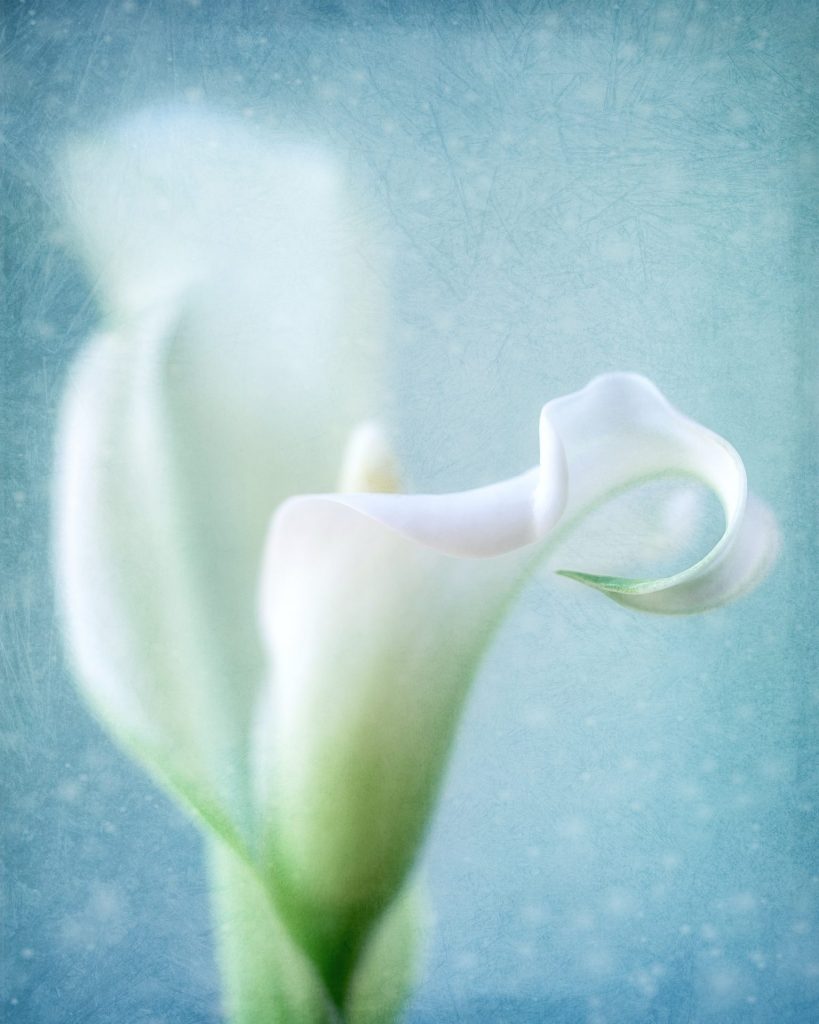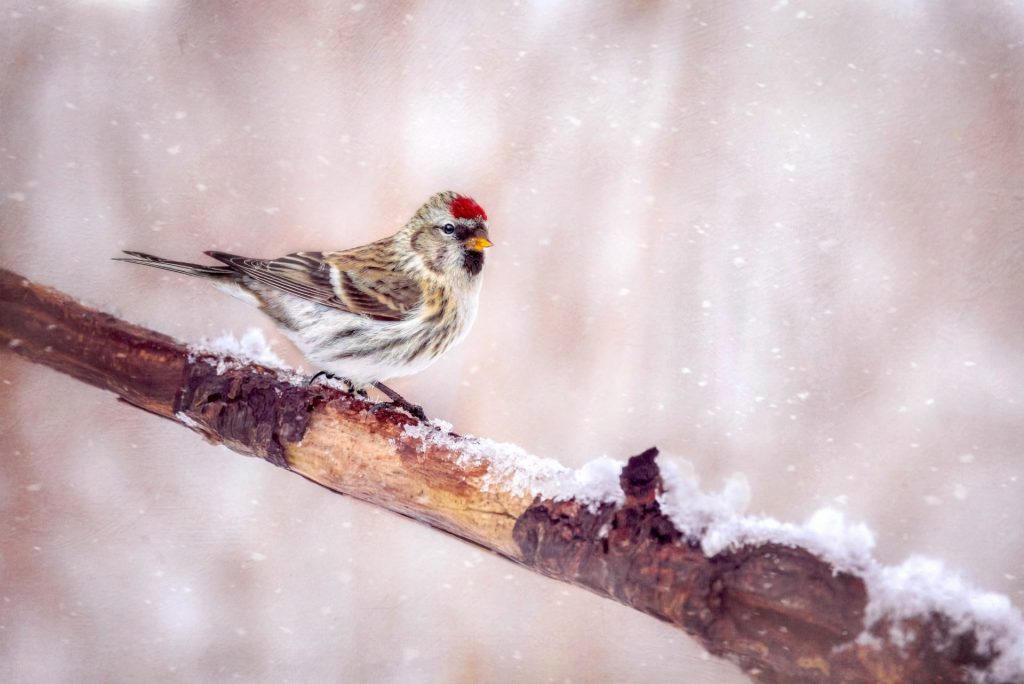
Another year, another month, other photos. I took this photo of a calla back in July when there was plenty of natural light. I usually take a lot of shots during spring and summer, which I can later edit during the long, dark winter days.
For this particular photo, I decided to give it a cool edit to complement the winter season.

Eurasian tree sparrow (Passer montanus), winter edition. I love how the few remaining leaves poke through the snow and add a splash of color to the wintery scene.

Wood nuthatch (Sitta europaea) striking a pose. Nuthatches have such a graceful way of landing and taking off, pausing for a few seconds while posing like a model on the catwalk!

I photographed this common redpoll female (Acanthis flammea) back in 2022 but only got around to processing it now. When I looked through my photo library for an image to edit, I realized I hadn’t seen many redpoles last year. I’m not sure why. I do hope they’ll return that year; they’re so beautiful and always fun to photograph, especially the males; they have pink breasts!

Blackbird female (T. merula). I shot this in the darkest December last year at ISO 12.800. It was 11am, and the brightest light you could get was some kind of grayish twilight. You wait and wait for the daylight to appear, and then, suddenly, the sun starts to set, and it gets dark again.
As mentioned above, I rarely shoot in November/December because it’s too dark. As you can see, you can still get beautiful photos, but I find it’s too much work; it’s not worth it. I ran the image through Topaz Photo AI to reduce the noise and then Nik Color Effex to retrieve some feather details.

To get away shooting in low light with a high ISO, you do need to shoot to the right (of the histogram), as noise hides in the darker areas. It helps if you have a lens with a large aperture (f/2.8 or F/4) to let in more light, but unfortunately, I don’t. My Canon RF100-500mm F4.5-7.1 L IS USM lens’ largest aperture is f/7.1 at 500mm.
On the other hand, problems are good; they force you to get creative and work around them. As I always say, creativity thrives on constraints. Look past the issues and see the opportunities!
As an avid birdwatcher and photographer, I always try to capture the beauty and grace of these magnificent creatures. Birds are fascinating creatures that come in all shapes, sizes, and colors, and taking their photos can be a challenging yet rewarding experience.
Overall, these photos are just a tiny glimpse into the incredible beauty of the natural world. By taking pictures like these and sharing them with others, I hope to inspire a love and appreciation for nature that will hopefully last for generations.
I hope you enjoyed these photos; there are more to come next month.
Related Posts
- My 2023 Favorite Photos
- Favorite Photos: December 2023
- Favorite Photos: November 2023
- Favorite Photos: October 2023
- Paris Is Always A Good Idea
- Favorite Photos: August 2023
If you liked this post, share it on your preferred social network or forward it to a friend.